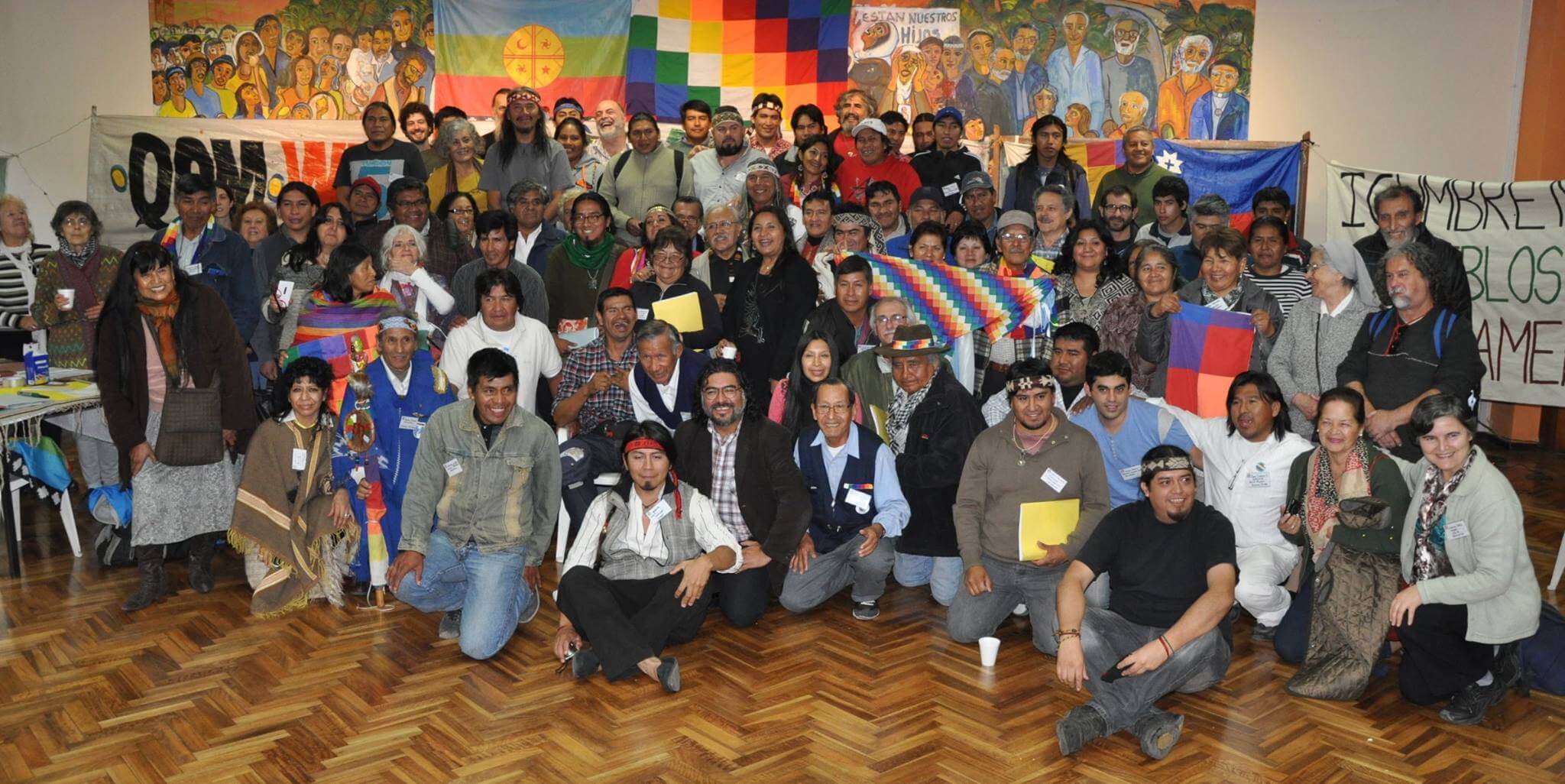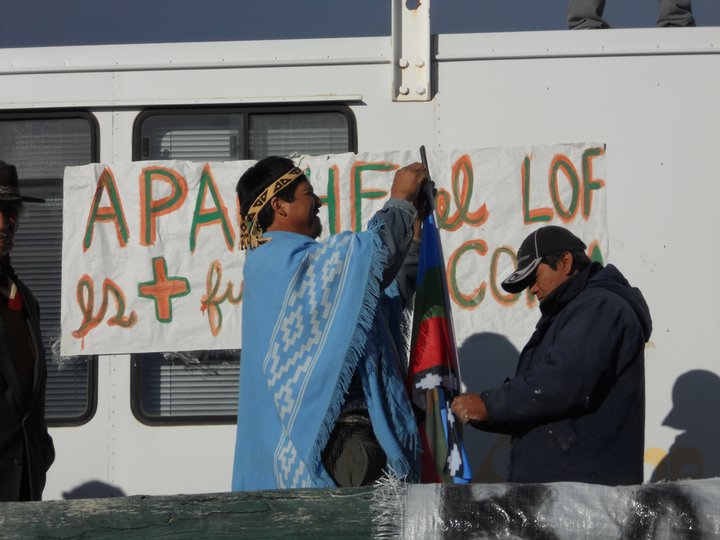The Wichí are an indigenous people located throughout the headwaters region of the Bermejo River and the Pilcomayo River, in Argentina and Bolivia.
Wichí have traditionally lived from hunting, fishing and basic agriculture. Since the beginning of 20th century, significant portions of their traditional land have been taken over by outsiders, and what was once a grassland became desertified by deforestation, introduction of cattle and, more recently, by the introduction of alien crops (soybean). A study made in 1998 by a graduate student from Clark University, Worcester, MA based on satellite photo surveys showed that between 1984 and 1996 20% of the forest has been lost.
The Wichí were affected by the recession that lasted from 1999 to 2002, but their relative economic self-sufficiency, their physical isolation and the lack of recognition on the part of the authorities largely diminished the impact of the crisis, which was circumscribed on inflation in the price of certain goods they cannot produce (such as sugar and red meat, replaceable by wild honey and fish) and on problems with the supply of medicines and healthcare.
For many years, the Wichí have been struggling to get legal titles to the land they traditionally own, constantly seized and fenced by non-indigenous cattlers and farmers. Their main claims are centered in two large public land areas in eastern Salta, known as Lote 55 (about 2,800 km²) and Lote 14. The Wichí rights to that land have been recognised by law, but no practical enforcement actions have been taken by the Salta provincial government.
At the beginning of 2004, the government of Salta decided to lift the protected status of the General Pizarro Natural Reserve, an area of 250 km² in the Anta Department inhabited by about 100 Wichí, and sell part of the land to two private companies, Everest SA and Initium Aferro SA, to be deforested and planted with soybean. After months of complaints, legal struggle, and a campaign sponsored by Greenpeace, on 29 September 2005 (after an exposure in a popular TV show) a group of Argentine artists, actors, musicians, models, environmental groups and Wichí representatives arranged a hearing with Chief of Cabinet Alberto Fernández, Director of the National Parks Administration Héctor Espina and President Néstor Kirchner himself. The national government promised to discuss the matter with Salta governor Juan Carlos Romero.
On 14 October 2005 the National Parks Administration and the government of Salta signed an agreement to create a new national protected area in General Pizarro. Of the approximately 213 km² comprised by the new reserve, the Wichí will have the right of use of 22 km², and they will own 8 km².
Adapted from Wikipedia’s article on the Wichi Peoples



